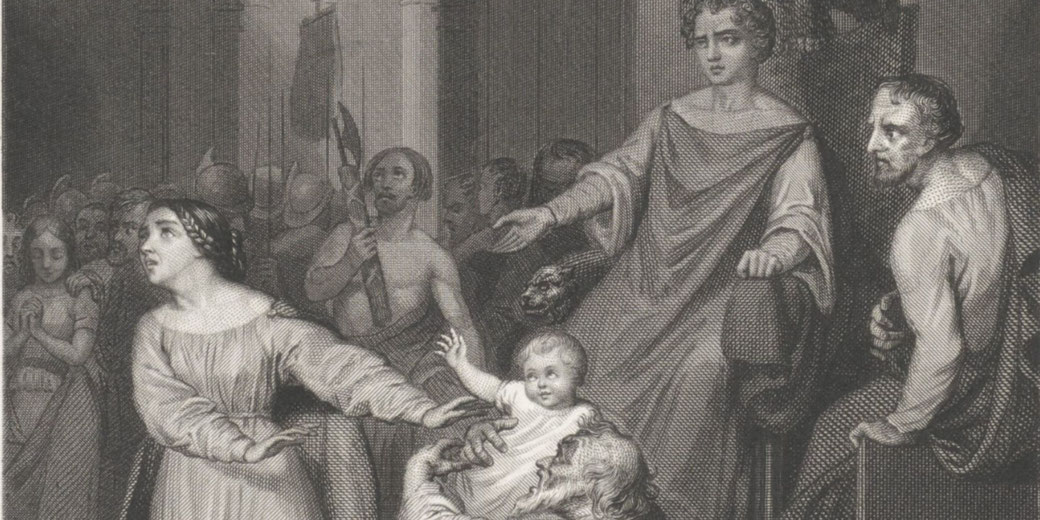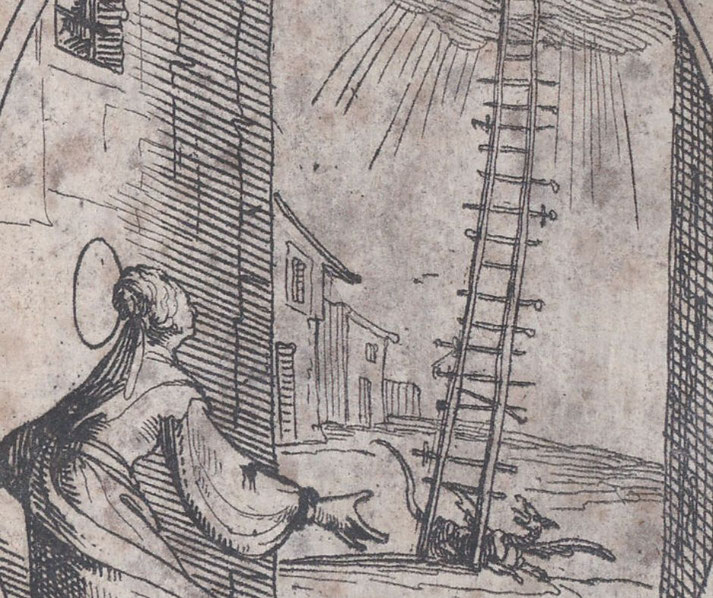Perpetua and Felicity: The first female Christian martyrs to record their harrowing persecution

In the early third century AD, the Roman Empire saw frequent clashes between imperial authority and the spread of Christianity.
Among those arrested during this period, two Christian women from Carthage, Perpetua and Felicity, became especially well known.
Their arrest, trial, and execution were recorded in one of the earliest remaining Christian writings, probably written by a woman.
The persecutions of Christians in 3rd century Rome
Under traditional Roman custom, religious harmony relied upon public rituals and ceremonies that included festivals and sacrifices to the gods.
As a result, Roman officials treated Christianity with suspicion, since its followers refused to honour these customs.
The refusal to sacrifice to the gods appeared to threaten the empire’s stability and invited divine punishment.
During the reign of Emperor Septimius Severus, Christian persecution reportedly increased.
He initially maintained peace after his rise to power in AD 193, but Christian writers later claimed that in AD 202 Severus endorsed a decree forbidding conversions to Christianity and Judaism, though no formal edict survives in the historical record.
From that moment, Christians who had not yet completed baptism became particularly at risk of being prosecuted.
The decree, if it existed, refrained from banning Christianity itself and instead made sharing their faith a crime, especially in regions where conversions had spread rapidly.
In the provinces, Roman governors enforced rules on religious obedience with different levels of harshness.
In Africa Proconsularis, the situation worsened as authorities targeted Christian gatherings and public converts.
Hilarianus, who was the governor of Carthage, used a range of legal measures to compel participation in state religion.
Roman policy treated refusal to sacrifice as an act of rebellion against the imperial system.
Executions, viewed as public events, encouraged loyalty to Roman ideals.
Who were Perpetua and Felicity?
Perpetua belonged to a wealthy Roman family and received an education that most women of the time never accessed.
At twenty-two years old, she had recently become a mother and had converted to Christianity despite her father’s opposition.
Her arrest shocked her family, who viewed her actions as both reckless and dishonourable.
Felicity, arrested with her, held no such privileges. She was a household slave and heavily pregnant when imprisoned.
Roman law prohibited the execution of pregnant women, so her sentence remained delayed until after childbirth.
Perpetua and Felicity came from entirely different social classes, yet both committed themselves to the same faith.
Alongside them, three men, Revocatus, Saturninus, and Secundulus, faced the same charges.
Revocatus, like Felicity, was a slave, while the other two were freeborn men. All five had begun instruction as catechumens and were baptised while in detention.
In Christian tradition, catechumens prepared for formal baptism through religious instruction, though martyrdom itself was regarded as a "baptism by blood" if they died before the rite could be performed.
The dramatic arrest of the Carthaginian Christians
In Carthage, soldiers arrested the five Christians and placed them under house arrest while their cases were reviewed.
For a short time, they had access to visitors, and during this period, they completed their baptisms.
At this time, Perpetua began a writing personal narrative in which she recorded her thoughts and experiences.
Her entries, later preserved in The Passion of Perpetua and Felicity, form what many consider the earliest known Christian writing by a woman.
Soon afterwards, her father tried to change her mind, once he realised that she was dedicated to following through on her faith, even if it meant execution.
He visited often and urged her to renounce Christianity to save herself and preserve her family’s name.
His pleas grew increasingly desperate, but she refused to waver.
Eventually, Roman authorities transferred the group to prison. Inside the prison walls, the conditions grew far worse.
Cells were overcrowded, cleanliness was poor, and prisoners received minimal food.
For the women, the situation became especially difficult.
Their cruel imprisonment awaiting trial
In the prison, Perpetua struggled to care for her infant son. Initially, the guards kept the child from her, which caused her deep upset.
Eventually, her family arranged for the boy to be brought to her cell, which provided some comfort.
Despite the physical discomfort and emotional pain, she continued to pray, reflect, and write.
Meanwhile, Felicity prepared to give birth. Surrounded by other prisoners, she went into labour and delivered a daughter just days before the scheduled execution.
Christian women in the community arranged to care for the child, which allowed Felicity to face death without fear for her baby’s future.
Her courage in giving birth in full knowledge of her fate became a source of admiration among those who knew her.
Among the imprisoned, spiritual preparation remained constant as they encouraged each other and interpreted their suffering as a final trial of faith.
In Perpetua’s view, her suffering affirmed her devotion and prepared her soul for what awaited.
What happened at their trial?
At the public hearing, Governor Hilarianus presented each defendant with a choice.
They could sacrifice to the emperor and be released, or refuse and face death.
Each prisoner refused, without hesitation.
Soon after the proceedings began, Perpetua’s father rushed into the court and held her infant.
He pleaded with her to recant and begged the governor for leniency. In response, Hilarianus ordered the guards to beat him, then condemned all five prisoners to death in the arena.
Under Roman custom, executions was an important part of public festivals. On these occasions, spectators filled the amphitheatre to witness criminals punished.
For Christians, the arena became both a place of horror and a stage of defiance.
Perpetua’s powerful religious visions
During her imprisonment, Perpetua recorded several dreams which gave meaning to her suffering.
In one vision, she climbed a ladder guarded by weapons and reached a heavenly garden, where a shepherd greeted her.
She believed this confirmed that martyrdom would lead to spiritual peace.
On another occasion, she saw her deceased brother, Dinocrates, who had died as a child of a deforming facial illness.
In her first vision, he suffered from thirst and wounds. After days of prayer, she saw a second dream in which he drank from a golden cup and appeared healed.
Her prayers, she believed, had brought him comfort.

Later, she recorded a vision in which she fought a gladiator and defeated him. In this vision, she transformed into a male combatant and struck down an Egyptian opponent.
The dream may have represented the inner struggle she would soon endure since, acording to her narrative, the vision gave her strength and certainty that she would triumph over death.
The day of their brutal execution
On the morning of 7 March AD 203, Perpetua, Felicity, and their companions entered the arena in Carthage.
Crowds had gathered to watch the executions, which were part of the games held in honour of the emperor’s birthday.
In the arena, the women faced a wild cow chosen for its mythological link with fertility.
The animal gored both women, and guards temporarily removed them before the next phase of the execution.
Perpetua and Felicity stood again before the crowd, wounded but unshaken.
Eventually, the guards brought swords to finish the sentence. According to the written account, the executioner hesitated and Perpetua guided the sword to her throat.
Whether this detail reflects a historical event or later editorial addition, remains uncertain.
Still, her calmness, even in death, deeply impressed those who witnessed it. Her final act became one of the most repeated moments in early Christian literature.
Why are Perpetua and Felicity famous Christian martyrs?
Among early Christian accounts of martyrdom, the story of Perpetua and Felicity holds a special place.
They died during an officially sanctioned persecution, leaving behind a written record that revealed how their faith endured and their resolve overcame fear.
Perpetua’s narrative gave later generations a voice from inside the prison, rather than a retelling from outside.
In addition to their personal courage, their difference in social status added a deeper meaning.
A noblewoman and a slave, who came from opposite ends of Roman society, became united in suffering.
Christians viewed their friendship and mutual support as an example of the Church’s vision of equality under God.
Eventually, the Church declared them saints, assigning them a joint feast day and including their story in collections of early martyrdoms.
Their words continued to be read long after the Roman Empire had changed, and St. Augustine later delivered sermons in their honour, which helped preserve their memory across North Africa.
Finally, the reocrd of their lives and deaths remains one of the most powerful testimonies of faith in the early Church.
What do you need help with?
Download ready-to-use digital learning resources
Copyright © History Skills 2014-2025.
Contact via email
With the exception of links to external sites, some historical sources and extracts from specific publications, all content on this website is copyrighted by History Skills. This content may not be copied, republished or redistributed without written permission from the website creator. Please use the Contact page to obtain relevant permission.





